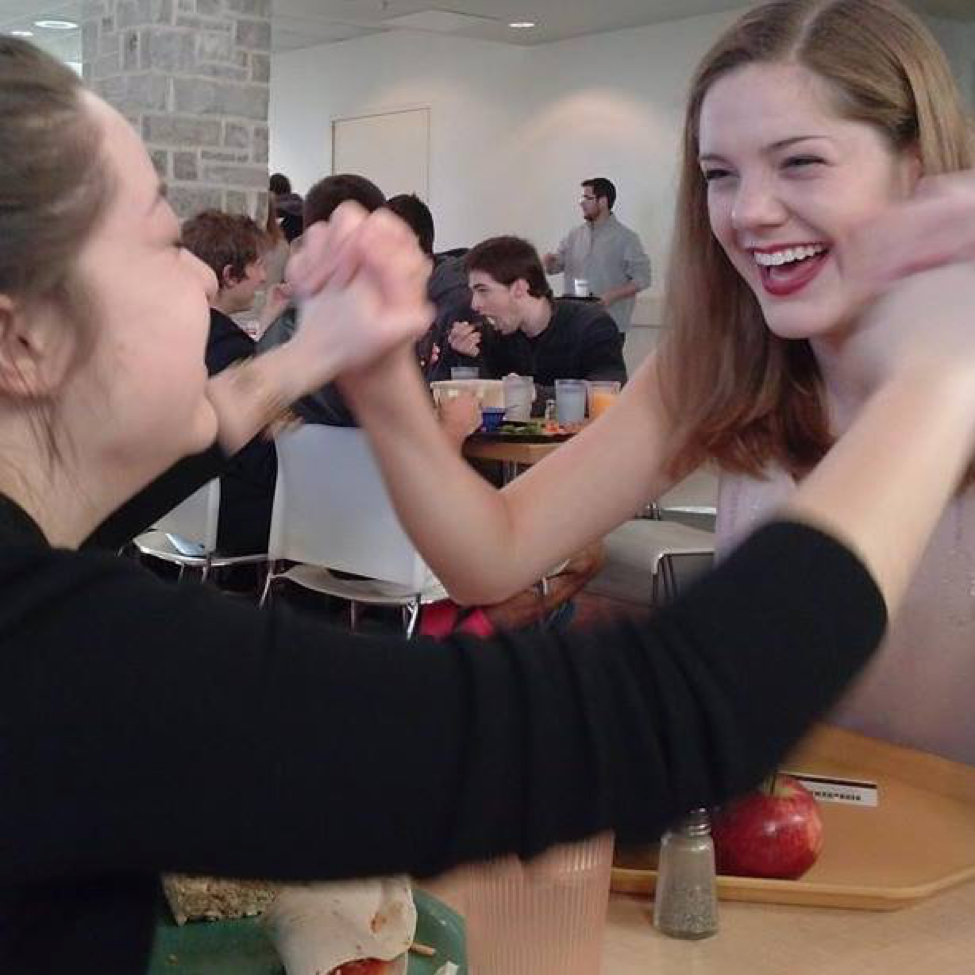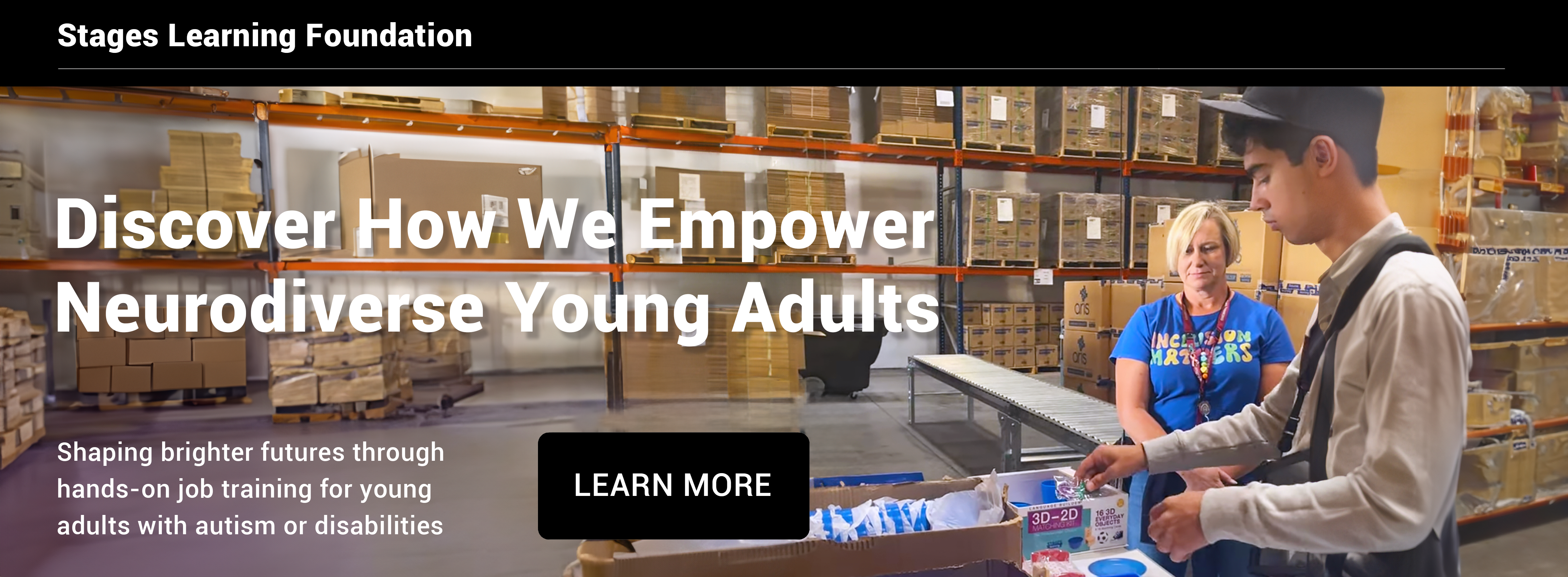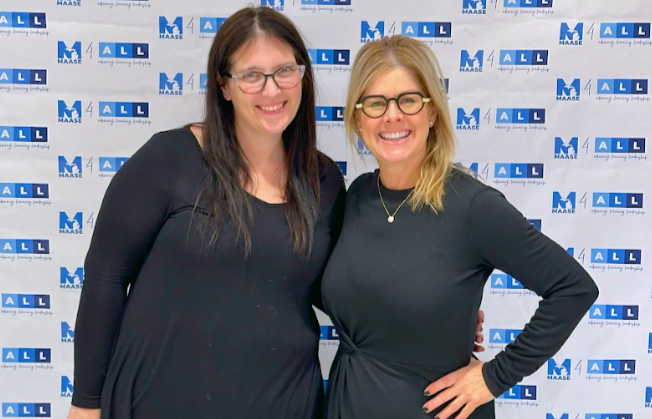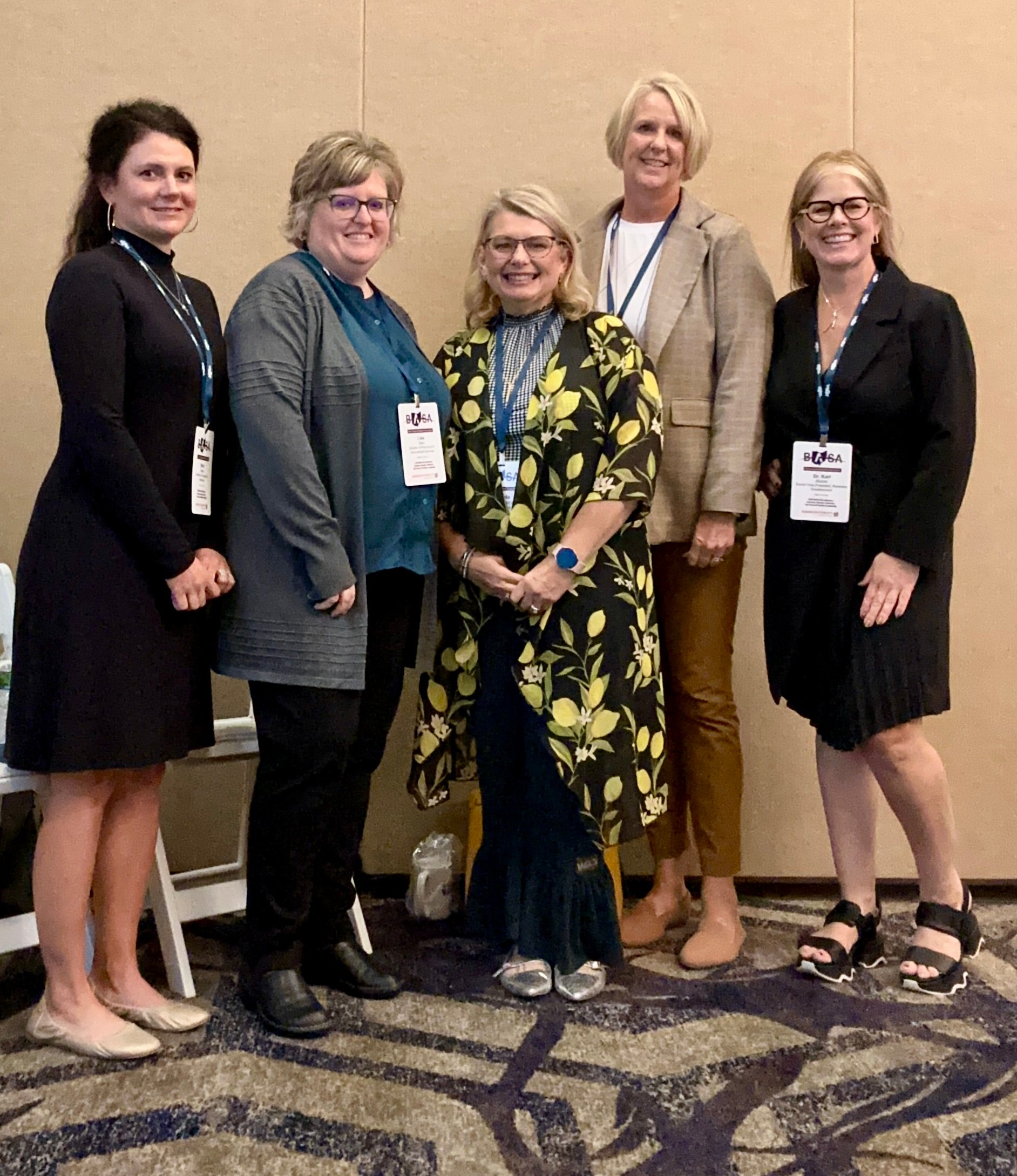Young Adulthood on the Spectrum: An Interview with a Friend
| “A good way to picture the autism spectrum isn’t from low to high like a grading scale, but like the spectrum of light in a rainbow. Where different people fall on the spectrum allows them to be viewed as all different colors, but no color is less than any other. They are each equally beautiful and important.” |
Leslie and I met in our freshman dorm and became friends over our shared love of Lord of the Rings, Target, and not going out. She is one of my favorite people to this day, and she also has autism. I could talk all day about her fascinating story, but I would prefer to let her tell it in this conversation about her experience navigating college and young adulthood on the spectrum.
Hi. How was your day?
Hi there! I'm going to go with the honest answer: my day was pretty tough. The weather’s been really gloomy lately and I’m ready for some sunshine. But the day ended with going out to dinner with my boyfriend for a warm bowl of pho on a rainy fall night, so we’re making the best of it. Thanks for asking!
You're welcome! Just right off the bat, are there any assumptions you feel like people are still making about folks on the spectrum that you want to dispel?
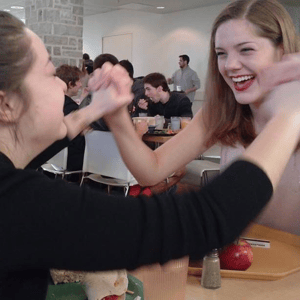 Hmmm... This might be a big undertaking, but one I've been thinking about a lot lately is the idea that the autism spectrum is framed by "high-functioning" and "low-functioning” ends. A fundamental part of having autism is having what are called splinter skills, or widely varying ability levels in different facets of life. They're pretty much strengths and weaknesses like everyone has, but to an extreme. I've met people with ASD with incredible conversation skills and academic smarts, but they can't manage to keep their home clean or hold a job. I've also met nonverbal individuals who write poetry with awe-inspiringly intelligent emotional insight or who are in better physical shape than I will ever be. What it often comes down to with these labels are how closely an individual can pass as “normal” or how well they can function in what society deems a successful life. Who are any of us to say which skills are valid to excel at and which talents don't qualify a person as adequately functioning? I think that if we stopped to learn many "low-functioning" individuals' alternative means of communication, and if they cared to share with us, we would see how valuable their talents are.
Hmmm... This might be a big undertaking, but one I've been thinking about a lot lately is the idea that the autism spectrum is framed by "high-functioning" and "low-functioning” ends. A fundamental part of having autism is having what are called splinter skills, or widely varying ability levels in different facets of life. They're pretty much strengths and weaknesses like everyone has, but to an extreme. I've met people with ASD with incredible conversation skills and academic smarts, but they can't manage to keep their home clean or hold a job. I've also met nonverbal individuals who write poetry with awe-inspiringly intelligent emotional insight or who are in better physical shape than I will ever be. What it often comes down to with these labels are how closely an individual can pass as “normal” or how well they can function in what society deems a successful life. Who are any of us to say which skills are valid to excel at and which talents don't qualify a person as adequately functioning? I think that if we stopped to learn many "low-functioning" individuals' alternative means of communication, and if they cared to share with us, we would see how valuable their talents are.
A good way to picture the autism spectrum isn’t from low to high like a grading scale, but like the spectrum of light in a rainbow. Where different people fall on the spectrum allows them to be viewed as all different colors, but no color is less than any other. They are each equally beautiful and important.
Were there any big shifts for you when you started college?
| I made the conscious decision to be forced out of my bubble and learn how to engage with the world that my family and old friends had sheltered me from. It certainly didn’t turn into the glamorous college movies I had studied up on, but the bumps along the way taught me my own personal challenges and forced me to accept my autism in a way I hadn’t before. |
College was a big shift for me personally because I moved across the country to a place I had never been before and knew nobody. I really wanted a fresh start away from those people who had known me since birth and couldn’t see past my childhood limitations as I grew into an adult. I decided to attend our school over my other options because the personality of the school was so warm and social. I made the conscious decision to be forced out of my bubble and learn how to engage with the world that my family and old friends had sheltered me from. It certainly didn’t turn into the glamorous college movies I had studied up on, but the bumps along the way taught me my own personal challenges and forced me to accept my autism in a way I hadn’t before. It wasn’t going to go away just because I decided to try some new things and make some new friends. College made me realize that it’s here to stay, no matter how far I run from it.
Where was your favorite place to study and why?
Studying was a challenge for me on a campus where it was so hard to find a place alone. I have some interesting sensory processing differences, in that my brain isn’t able to tune out input that your average brain would, like peripheral vision movement or inconsequential background noise. It alerts me to even the most repetitive stimulus every single time. I also have hypersensitive vision, hearing, and touch. This obviously makes me highly distractable and it is often infuriating when trying to learn something new or express complex thoughts. If I really needed to get stuff done, I would go early in the morning to stake out one of the much-coveted private study rooms in the library. I knew the rooms that were the most out of the way and felt most like sensory voids. I could hide in there for a whole day to catch up on everything that was overwhelming me.
I feel like it should be the school's responsibility to make specific study spaces for students with sensory processing needs. Do you wish you had pushed our school to do that, or does that just not gel with your personality? Also remember when we would study on the floor of the laundry room because it was so nice and warm?
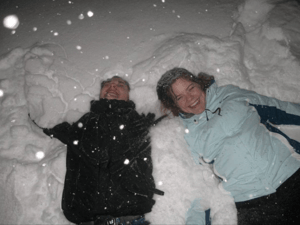 I loved studying in that little boiler room! Such cozy memories. That’s definitely a close second favorite study place. As for pushing the school to help with it more, I suppose I could have. For a while, I did regret not requesting formal accommodations because I did struggle academically because of these things. I think I was still a bit too proud to admit that I couldn’t fix it by myself. Since I’ve gotten over that, I’ve stopped regretting not seeking help and just accepted that it was what I needed in those years to demonstrate that while I could pretend that I was normal around people, my autism still significantly impacts me. I needed those years of failure to showcase my impairments.
I loved studying in that little boiler room! Such cozy memories. That’s definitely a close second favorite study place. As for pushing the school to help with it more, I suppose I could have. For a while, I did regret not requesting formal accommodations because I did struggle academically because of these things. I think I was still a bit too proud to admit that I couldn’t fix it by myself. Since I’ve gotten over that, I’ve stopped regretting not seeking help and just accepted that it was what I needed in those years to demonstrate that while I could pretend that I was normal around people, my autism still significantly impacts me. I needed those years of failure to showcase my impairments.
The idea of built-in accommodations for every student, like more quiet spaces or anything else, is amazing and hopefully realistic sometime soon, but I can see that it would be challenging for institutions that attract such a diversity of individuals.
Was there a certain level of friendship that somebody at school had to unlock before you wanted to share that you’re on the spectrum, or did you not really think about it?
| Lately, since becoming more active in the ASD community, I see it as an educational tool. Females and adults are dramatically underrepresented in the public’s average idea of autism. I’m trying to more actively put myself out there as one example of what autism can look like in real life. |
I guess I bring it up once it becomes relevant. I am certainly a quirky person, but I can easily pass as neurotypical even to those that I consider myself close to. For most of my life I have mostly disclosed when I feel comfortable around someone and it comes up in conversation. I certainly don’t mind informing people, I’ve often found it a fascinating gauge of a person based on how they react.
Lately, since becoming more active in the ASD community, I see it as an educational tool. Females and adults are dramatically underrepresented in the public’s average idea of autism. I’m trying to more actively put myself out there as one example of what autism can look like in real life.
Was there ever a time where somebody said or did something ignorant to you?
Honestly, I’m rarely phased by people’s ignorance regarding ASD, which has its pros and cons. I am not one to keep up with the news or discuss hot topics with my neighbors, so I know that I am woefully ignorant of so many things in the world. Who am I to judge?
I suppose the one incident I can think of off the top of my head was a recent remark made by a close friend. She is a mental health provider and works with one child on the spectrum who I think has really made her think about my ASD like she hadn’t before. Out of the blue one day she said something along the lines of, “I really would never think you have autism if I didn’t already know. You must have worked so hard when you were young.” Like I said, I’m not one to take such comments personally, so I was struck by how much it impacted me. Yes, I did work extremely hard as a child. My ASD was far more apparent than it is today and my co-diagnosis of Sensory Processing Disorder (not uncommon in ASD) disrupted every moment of every day for my entire family. I went through intensive early intervention occupational therapy instead of going to preschool with the other kids.
On some level, I really appreciated that she acknowledged these early years of my life. BUT. That doesn’t mean that my work is over. What I guess I make look effortless at this point in my life is still hard work on a daily basis to keep up a mask that keeps others from seeing how much I struggle. I certainly have my bad days where I can’t leave my own home due to crippling anxiety that comes with my autism. It made me realize that even our direct support professionals, including this friend who I know to be a wonderful person, can sometimes fail in their ideas of what a life with ASD entails. It is not just a childhood disorder, it is my life. Just another reason to be more open about my diagnosis and how it impacts me.
Even though I knew you were working hard to "keep up a mask" at school, you never let it slip and it was easy to forget to check in on you. Out of all the mental breakdowns you've witnessed from me, I really can only remember one time witnessing you feeling overwhelmed.
It’s truly nothing personal when I keep my mask up. In college it was particularly impenetrable because I saw myself as a burden or an inconvenience to people if I made them uncomfortable in any way because of my awkwardness. I saw it as my job to keep up an act to keep other happy. Those thoughts are certainly changing these days, but it’s a deeply ingrained habit that would take some work to break down.
Was there something someone did once that you found particularly thoughtful?
With my ASD, I don’t process emotion very efficiently. When things are piling up and life starts to get the best of me, I often pretend like it’s not happening until the tiniest thing sets me off and my entire world implodes. Last year I had just moved to a new city, started my first professional full-time job, started paying real bills for the first time and managing a true income, and trying to furnish a first apartment. Everything was swell for the first month or so until one day, I burnt some garlic bread in the broiler. It was a bit smoky and a small part of our dinner was ruined, but you would have thought that every pet I had ever owned in my life had died in that moment based on the sobs as all of my distress came pouring out.
| I ran and hid in my bedroom closet, as I do when I can’t handle life anymore and really just need a sensory vacuum STAT. That’s right, I left the garlic bread close to flames under the broiler with the fire alarm now blaring and my boyfriend still standing in the kitchen not knowing what the heck just happened. |
I ran and hid in my bedroom closet, as I do when I can’t handle life anymore and really just need a sensory vacuum STAT. That’s right, I left the garlic bread close to flames under the broiler with the fire alarm now blaring and my boyfriend still standing in the kitchen not knowing what the heck just happened. But do you now what he did? He turned of the broiler. He closed the oven door and opened the windows. He fanned the smoke detectors until they stopped announcing my failure. And then he silently slid my tablet in through a crack in the closet door so that I could read my cheesy romance novel and calm down. He didn’t make me come out and clean up my mess. He didn’t force me to tell him what happened or even try and hold me as I cried. He fixed the immediate situation, quieted the environment, and gave me my preferred tools to calm myself: space and escapism.
In summary, when you live, work, friend, whatever with an autistic person, put in the effort to figure out what’s going to help when their world feels like it’s falling apart. Meltdowns are going to happen and as strange as it seems, it means you’re a really special person if we let you see that absolutely terrified, out of control side of ourselves. Don’t take it for granted or scold us for it, even when you don’t understand our reactions. Accept us for who we are and help guide us through those seriously scary moments with love and patience.
That is the cutest story in the entire world. If you could go back and change something about your college experience, what would it be?
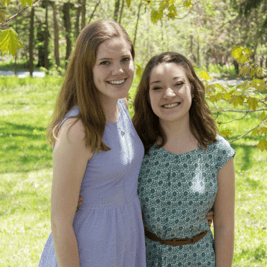
I wouldn’t have taken Latin. No really, it sucked and tanked my GPA. But otherwise, I’m really happy with how college turned out. I spent some semesters drowning in mental health struggles when I probably should have reached out for a helping hand, but those days strengthened the friendships that ultimately mattered and threw away the ones that didn’t. It wasn’t all fun, but I can’t say I would change much.
Can you share what you’re up to now?
days I’m working at the Autism Society, so I have the pleasure of interacting with individuals with a whole variety of relationships to autism. It’s taught me so much. I’m even going to an all-day Autism Self-Advocacy Summit this weekend so that I can learn more about better serving this community that I am a part of. Plus, how great is it that I get to work with a team of people who understand my very core and clearly know how to accommodate my weirdest quirks? SUPER GREAT! I also knit, run, read, and work in my community garden vegetable plot.
.jpg)
Emma Shanahan
Emma Shanahan is a Masters of Education candidate at the Harvard Graduate School of Education, focusing on Prevention Science and Practice. She previously taught as an elementary special education teacher in Memphis for four years, serving as a department chair for the last three. Emma is passionate about providing early intervention services to students with disabilities, as well as advocating for both parents and schools in the IEP.


